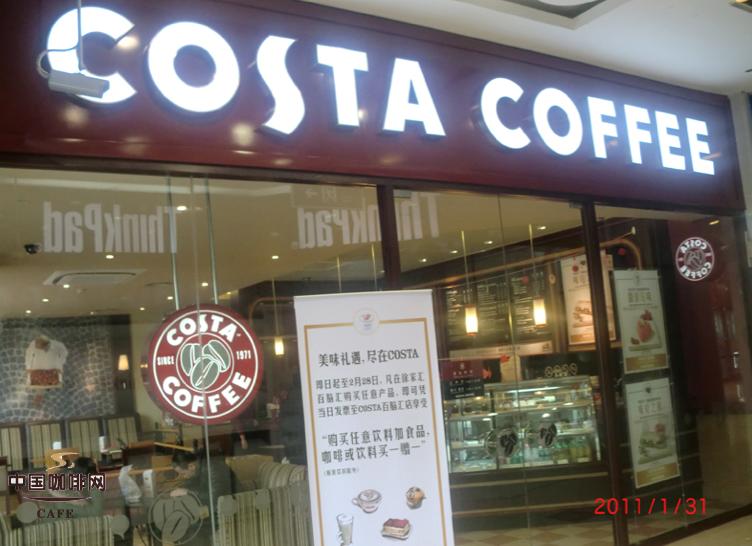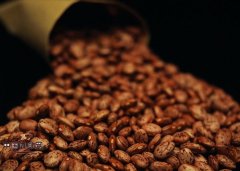Coffee Culture Rising in China--Popularity of Personalized Coffee House

According to a newly released set of data released by the Shanghai Food Industry Association, as of 2010, there were no less than 4000 professional cafes in Shanghai, more than 12000 stores concurrently engaged in coffee, and nearly 100000 employees. "caf é" is becoming a cultural phenomenon in Shanghai, Beijing and other big cities in China.
Visit Starbucks' website in eastern China and there are as many as 148 stores in Shanghai alone. Coffee and soft drink chains such as COSTA, fragrant coffee and Happy Lemon are also becoming popular in Shanghai's transportation hubs, shopping malls and parks. More unique, however, are the personalized small cafes dotted all over the streets.
"opening a cafe may be the dream of many people, but the dream must face the reality. The operating costs of small coffee shops are getting higher and higher, and the competition is fierce. The survival of small coffee shops depends on their unique personality and marketing. " Liu Renhe, who is called "Lao Mai" by customers, said.
Unlike Starbucks, COSTA and other chain coffee shops characterized by industrial and standardized production, Laomai Cafe is a small private business, belonging to personalized coffee shops. In the three-story space of less than 100 square meters, it also has the function of "collection warehouse", which contains a variety of Chinese and Western mixed old photos and objects, including pictures of Mao Zedong and American movie posters. At the beginning of the store, Liu Renhe used his blog to "broadcast" the whole process of designing the store and solicited suggestions from Chinese and foreign netizens. On the first day of its opening in 2009, business exceeded his expectations. Today, the cafe also has its own Weibo.
Liu Renhe said: "in fact, the high cost of cafes is not raw materials such as coffee beans, but shop rent and personnel costs. And the cafe's' turnaround rate'is very low, seemingly high profits, in fact, it is very difficult to operate. " By "turnaround rate", he refers to the utilization rate of the dining table.
However, Liu Renhe still believes that the market potential of personality cafes should not be underestimated in China, and unlike Starbucks, COSTA and other chain cafes, personality cafes are expected to find their own position. "instead of providing unified service and batch drinks, we pass on the shopkeeper's cultural taste to our customers, turning coffee into 'soul coffee'."
"now many people around us are beginning to understand the difference between cappuccino, latte and mocha, and some coffee lovers also buy books about coffee and communicate with each other through the Internet." "among the various chain coffee brands, I only drink products from one brand, or simply choose a more expensive personality cafe, which I think is a symbol of the taste of life," said a female editor of a publishing house named Baomu. "
"the popularity of personalized cafes has a lot to do with the growing needs of modern people for communication. In the context of accelerated industrialization and urbanization, relatively indifferent social relations need a platform for communication and dialogue between people. Going to a coffee shop is one of the ways. " Said Zhang Yiguo, an associate professor at the School of Humanities of Shanghai University of Finance and Economics.
Zhang Yiguo analyzed that in the fast-paced Chinese urban life, the ascendant coffee culture reflects the Chinese people's strong desire for "slow life." From a certain point of view, the cafe, a place of public consumption compatible with China and the West, is a pressure relief valve for people to alleviate "public anxiety".
"We also found that many cafes also sell authentic Chinese tea, which also reflects the openness and inclusiveness of Chinese life."
Important Notice :
前街咖啡 FrontStreet Coffee has moved to new addredd:
FrontStreet Coffee Address: 315,Donghua East Road,GuangZhou
Tel:020 38364473
- Prev

Coffee fruit plantation
This 3-year-old Japanese girl, who speaks Mandarin in Yunnan, is always popular with farmers from all over the country. During the last picking season of coffee fruit, her parents Tian Daiju and Tian Daisi were the busiest. In this way, Tian Daihe has free space to haunt every corner of the coffee fruit manor. There are coffee fruits drying in the courtyard, these small white ones
- Next

Cappuccino: an interpretation of perfect Coffee
Cappuccino: the Italian who has always pursued perfection does not stop the pursuit of perfect coffee taste. Cappuccino arises at the historic moment. Cappuccino uses high temperature steam to make milk into delicate, soft, mellow milk foam. Then pour the milk foam evenly on top of the fragrant coffee. In this way, the top layer is milk foam and the bottom layer is coffee, which is a cup of cappuccino.
Related
- Unexpected! Ruixing Telunsu lattes use a smoothie machine to foam milk?!
- % Arabia's first store in Henan opens into the village?! Netizen: Thought it was P's
- Does an authentic standard mocha coffee recipe use chocolate sauce or powder? Mocha Latte/Dirty Coffee/Salty Mocha Coffee Recipe Share!
- What is the difference between Vietnam egg coffee and Norway egg coffee? Hand-brewed single product coffee filter paper filter cloth filter flat solution!
- What is the difference between sun-cured and honey-treated coffee? What are the differences in the flavor characteristics of sun-honey coffee?
- How to make Italian latte! How much milk does a standard latte use/what should the ratio of coffee to milk be?
- How to make butter American/butter latte/butter Dirty coffee? Is hand-brewed coffee good with butter?
- Is Dirty the cold version of Australian White? What is the difference between dirty coffee/decent coffee and Australian white espresso?
- Relationship between brewing time and coffee extraction parameters How to make the brewing time fall to 2 minutes?
- Got entangled?! Lucky opens a new store, Mixue Ice City, and pursues it as a neighbor!

